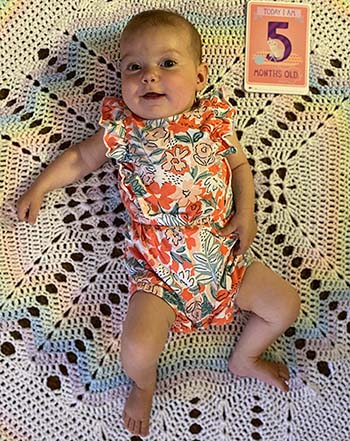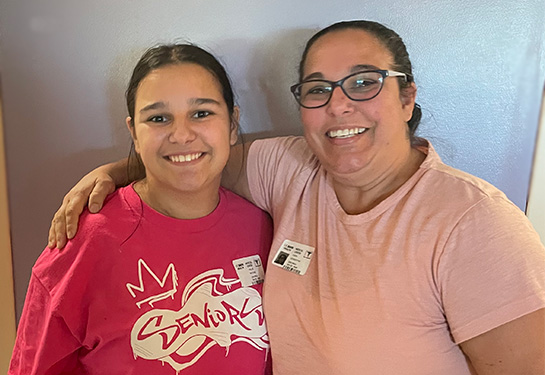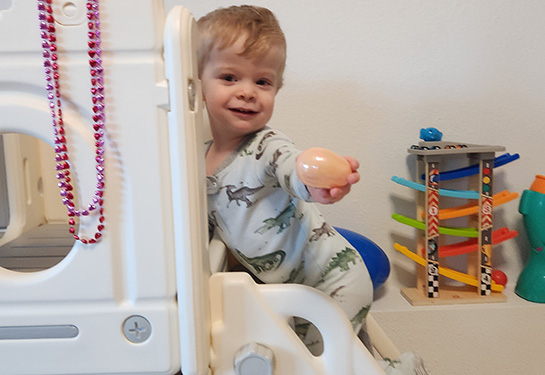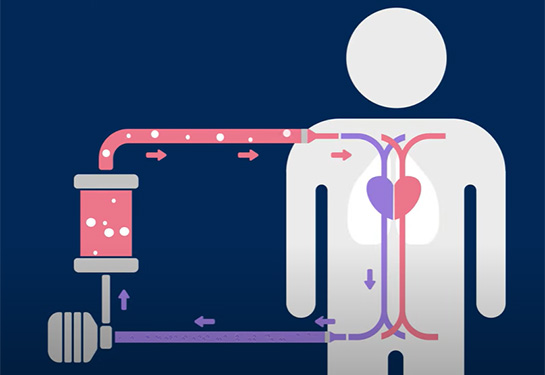Baby with rare heart condition transported to UC Davis for life-saving surgery
Heidi Carson seemed like a normal baby for the first few months of her life – but then something strange happened.
She suddenly lost her strong cry.
“Her voice was weak,” recalled worried new mother Carla Carson, “almost like she had laryngitis.”

The Carson family didn’t know it at the time, but their daughter had a rare congenital heart defect called total anomalous pulmonary venous return (TAPVR).
“This is a critical congenital heart defect usually diagnosed soon after birth. But in Heidi’s case, it wasn’t discovered until she was five months old,” said Lakshmi Nagaraju, Heidi’s pediatric cardiologist at UC Davis Children’s Hospital.
TAPVR accounts for only 1% to 3% of all congenital heart defects. If left untreated, TAPVR can cause obstruction to the pulmonary veins and lead to death. This congenital birth defect occurs when the veins bringing blood back from the lungs don’t connect to the left atrium as usual. Instead, they go to the heart via an abnormal connection.
Carla took Heidi to urgent care near their home in Weed, Calif. But when the care team couldn't detect her oxygen saturation levels, they sent her to the emergency room at Mercy Medical Center Mt. Shasta. Doctors suspected foreign body aspiration, which is when an object is inhaled and then gets lodged in the airway or lungs.
Her physicians concluded Heidi needed the specialty care that UC Davis Children’s Hospital could provide. She was airlifted to Sacramento by the UC Davis Children’s Hospital Transport Team. This transfer was possible, thanks to patient-centered partnerships between UC Davis Health and more than two dozen hospitals across Northern California. It’s part of UC Davis Health’s goal to improve access to care for everyone, no matter their location.
Once at the hospital, her care team performed a bronchoscopy which revealed Heidi’s cardiac diagnosis of TAPVR. Her enlarged heart was compressing her windpipe. Heidi’s parents were in shock to find out what their daughter was dealing with.
“We had no idea Heidi had a heart defect and suddenly she was fighting for her life,” Carson said.

Heidi Carson is now 23 months old and can lead a normal life.
Heart surgery repaired the defect and restored normal blood flow. Pediatric cardiothoracic surgeons performed the surgery, which proved to be a game changer.
Carson is impressed with her daughter’s life-saving procedure and overall care.
“Right away we could see she was in the best hands and I very much valued the way I was treated as a member of Heidi's team,” Carson said. “One attending physician told me his philosophy was that, to care for the patient meant truly caring for the patient. We were touched by his genuine concern and careful analysis of our situation as he directed Heidi's post-surgery plan,” Carson said.
She added: “We are forever grateful that our precious daughter had her life-saving TAPVR repair at UC Davis.”
Thanks to the successful surgery, her care team expects Heidi to live life as a normal child. Heidi just turned 23 months old.
“We’re honored that we could take good care of her,” said Nagaraju, the pediatric cardiologist. “It’s a joy to see her doing so well now.”



